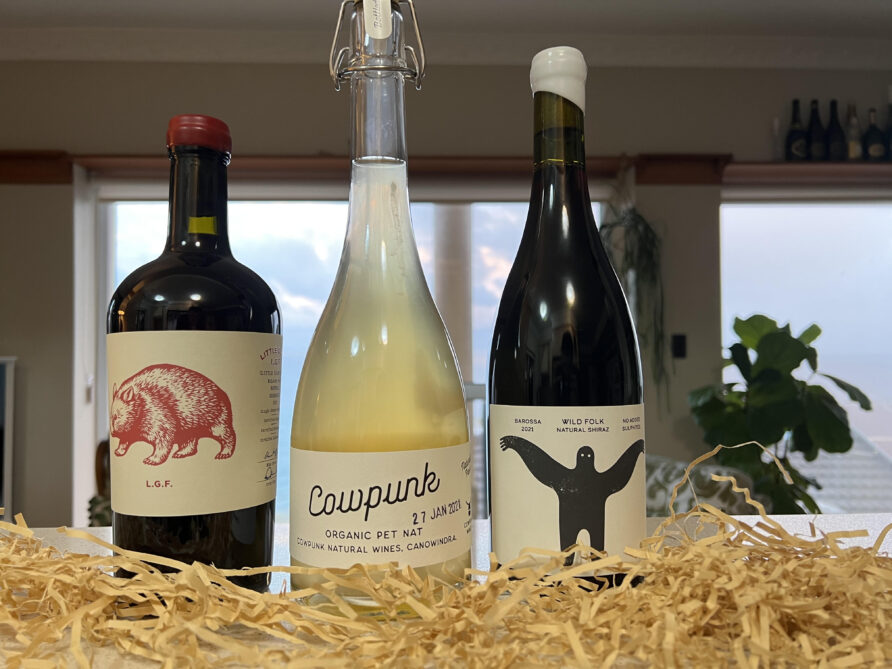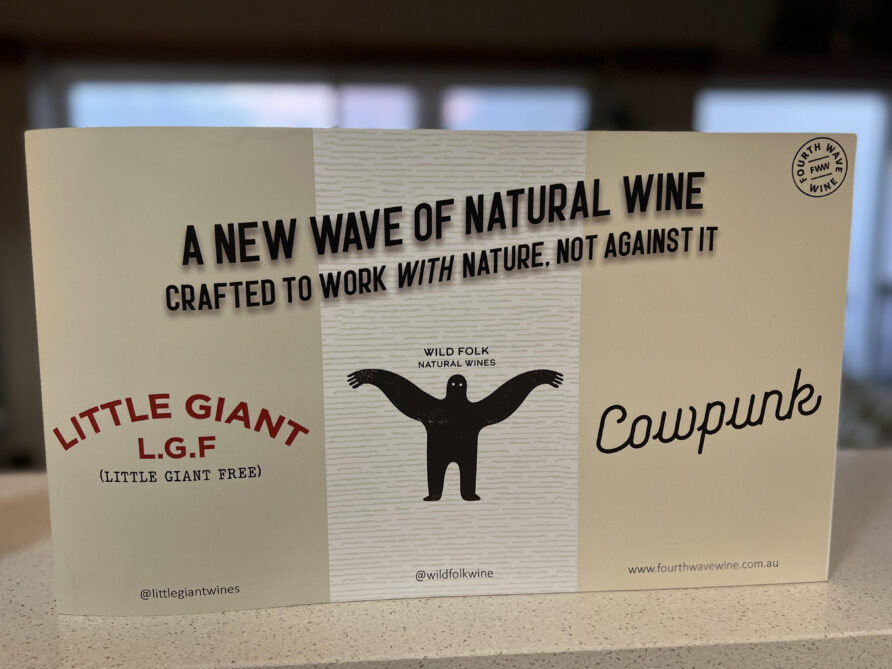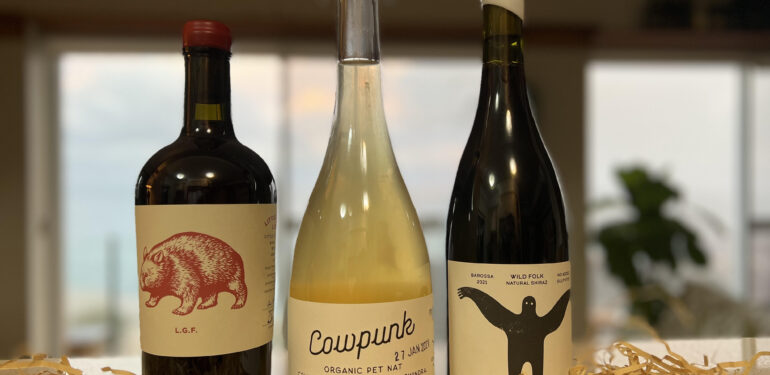If, like us, you enjoy experimenting with new wine varieties and styles, then you are likely already aware of the ‘natural’ wine trend that has been sweeping the globe in recent years. Although there is no universally accepted definition as yet, these wines are sometimes called minimal intervention, LoFi or ‘natty’ wines, and are often described as having had “nothing added, nothing taken away”.
Often, natural wines will be made with organic or biodynamic grapes; and wild, native yeasts – those that occur naturally on the grapes and/or in the vineyard – will have been used to ferment the grape sugars into alcohol (by contrast, most conventional wines use a yeast culture from a laboratory, as this is thought to produce a more stable, consistent, and reliable fermentation). Producers will typically minimise the amount of sulphur dioxide preservatives, other additives or colouring agents that are added to these wines (“nothing added”); and often, the wines will be bottled unfined and unfiltered (“nothing taken away”), meaning they can be slightly cloudy or hazy, and may throw a sediment.
Natural wines have become increasingly popular in recent years, but ironically are actually a return to principles and practices originally used by the Georgians (who have the longest unbroken tradition of winemaking in the world, dating back 8,000 years).
Enthusiasts believe the simpler techniques allow the grapes to express themselves more cleanly and purely, arguing that some traditional wines have become too processed. Natural wines can be bright, fresh, clean, and vibrant; they can taste alive. Detractors, however, claim that natural wines taste “funky”, displaying flavours of apple cider vinegar and sweaty socks. They suggest there is a reason science has spent the past century painstakingly eradicating the faults that cause these off-flavours.
Whatever your opinion, natural wine can be polarising. Some wine drinkers today will now only drink natural wine; whilst others would probably rather become permanently teetotal than force themselves to drink one. I personally have come to truly love natural wines over the past couple of years, and drink them almost as often as I drink conventional wines. I suggest therefore approaching them with an open mind, seeking some recommendations, and trying some.
Luckily, we’ve sourced a few delicious drops for you already.

The Little Giant Free (LGF) 2021 Grenache is natural, organic, biodynamic and sustainable. Made with minimal additions and preservatives, from premium South Australian fruit, it displays enticing red fruit flavours of cherry, strawberry jam tart and damson plum, alongside notes of white pepper and icing sugar.
The Wild Folk Barossa Valley 2021 Shiraz is wild yeast fermented, vegan, preservative free and unfiltered. Offering juicy black fruit flavours of blackberry, plum and blackcurrant, alongside notes of French vanilla spice and black pepper, this lovely wine exhibits a wholesomeness that only a natty wine can.
One subset of natural wine that has gained immense popularity here in Australia is the Pét-Nat. Abbreviated from pétillant naturel (French for “naturally sparkling”), Pet Nats are lightly sparkling wines made using the ancestral method, the world’s oldest sparkling winemaking technique. Bottled before all the grape sugars have fermented into dryness, these wines retain a hint of residual sweetness, and because the fermentation hasn’t been allowed to finish, carbon dioxide bubbles from the fermentation process are trapped inside – producing a refreshing, fun, lightly fizzy wine, with a hint of sweetness, ideal for any occasion. The Cowpunk Pet Nat is 100% natural, organic, vegan and preservative free, made entirely from Chardonnay grapes, and is absolutely delicious.

I caught up with Nicholas Crampton, co-founder of Fourth Wave Wine, the family-owned business behind these three wines, to get his take on this growing category and his approach to it.
NC: The whole natural wine movement started as a kind of underground and cool subculture, a bit like Punk music; it was meant to be cool, anarchic and a bit of a two-fingered salute to tradition. The purveyors of Natural wine were always at pains to distance themselves from the more commercial side of the wine business, which is understandable as their ethos was at odds with the mass commercialisation of wine. However those lines are blurring now and the aim for all of us is to just be making better wine altogether, whether it’s natural or not. It will become commonplace on the shelves, and we are starting to see that shift now. A new generation of drinkers are far more inclined to try these styles as they have seen so many more of them in wine bars, shops and restaurant wine lists.
TPO: Are there any hard and fast rules for you (or your winemakers) when it comes to producing these sorts of wines?
NC: Typically, a hands-off approach is employed and we try where possible to use Organic or Biodynamic vineyards with a sustainable influence. The winemaker will make a decision regarding whether the wine is to be unfined and unfiltered, but the brief is to make wines that have as little additions as possible, but are still true to the variety and region. We take great care to respect the intention and integrity of “Natural” – and ultimately to make great wines.
They’ve certainly managed to do that; these wines are delicious. Go on, treat yourself.

– Jonathan
Jonathan Leeming is a wine industry professional who lives and breathes wine. He is currently undertaking a Diploma in Wines, works as a wine marketer by day, and writes about wine and hosts wine events in his free time. A member of Mensa and a hardcore dog lover, you can follow him at @jpleeming, LinkedIn, and Vivino.
Little Giant Free 2021 Grenache, Wild Folk Barossa Valley 2021 Shiraz, and Cowpunk Pet Nat are available at major and selected independent retailers nationwide.
Disclosure: The Plus Ones were invited guests of Dialogue PR.
Image credit: Jonathan Leeming.




